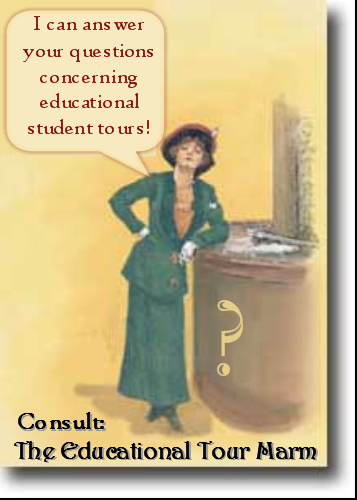Hugh Mercer Apothocary: Leeches
And then s he reaches for the leeches!
he reaches for the leeches!
The sight of someone putting a hand in a glass bowl filled with water and pulling out a slimy leech usually draws gasps from the eighth graders that I conduct through the Hugh Mercer Apothecary in Fredericksburg, Virginia. Some are revolted but others are mesmerized by the live, wet mass displayed on her hand. "Ooooo!” Questions abound concerning the origin, safety, care, feeding, and possible pain inflicted by the leech.
The colonial reenactors at the apothecary stay in character to interpret  colonial medications and extol the benefits of bleeding by this method, making several sales pitches in favor of the good doctor (one of over 5,000). Several students shudder, but most think it’s ‘cool’. They preface the need for leeches in 18th century terms by first pointing out that an imbalance of fluids (or humors) causes disease; the delicate balance of bodily fluids can only be reestablished by bleeding, purging, blistering and vomiting! It seemed that for every ailment, a vein would be opened for serious bloodletting, and/or leeches pressed into service; sometimes one would perform this on one’s self with a pocket scarificator.
colonial medications and extol the benefits of bleeding by this method, making several sales pitches in favor of the good doctor (one of over 5,000). Several students shudder, but most think it’s ‘cool’. They preface the need for leeches in 18th century terms by first pointing out that an imbalance of fluids (or humors) causes disease; the delicate balance of bodily fluids can only be reestablished by bleeding, purging, blistering and vomiting! It seemed that for every ailment, a vein would be opened for serious bloodletting, and/or leeches pressed into service; sometimes one would perform this on one’s self with a pocket scarificator.
The whole ex perience of learning about medicine in colonial America both fascinates and disturbs them. A few of the students, after being shown several herbs and roots, thought they were very much like the ones depicted in Harry Potter. However, they are surprised by the coarse, blunt, and dirty surgical instruments used by Doctor Mercer. Sterilization and hygiene are unknown during this time period, so naturally there was a high mortality rate.
perience of learning about medicine in colonial America both fascinates and disturbs them. A few of the students, after being shown several herbs and roots, thought they were very much like the ones depicted in Harry Potter. However, they are surprised by the coarse, blunt, and dirty surgical instruments used by Doctor Mercer. Sterilization and hygiene are unknown during this time period, so naturally there was a high mortality rate.
Imagine the students’ expressions when I inform them, after our visit, that leeches are still in use in modern medicine particularly for reattachment of fingers and toes as well as for breast cancer patients! They groan again, because there could be a remote possibility of a leech in their future, which is far scarier to them than a horror movie!
I normally go on to explain how the leeches, by their constant sucking, keep the blood flowing and exchange it for the natural anti-coagulants in their saliva. More groans! I also point out that leeches can carry bacteria that are detrimental by causing infection.
The good news, for my squeamish eighth graders, is that a mechanical leech is being developed and tested at the University of Wisconsin. The bell-shaped glass and metal device, measuring about a half an inch long, and patented by Wisconsin Alumni Research Fund, has fluids running through it, irrigating the wound while pulling the blood through. This process keeps the tissue healthy.
After our visit, questions and discussion are encouraged covering modern medicine, education, medication, antibiotics, (which would have allowed General Washington to live longer), diseases, epidemics, laser surgery, hospitals, homeopathic, holistic, and other alternative cures. After all, medicine and health should also be part of the histor ic picture.
ic picture.
The general consensus: these students would rather have died than to have been subjected to the ‘skill’ of this doctor - which was not unlike the sentiments of much of colonial society. Colonists had a better chance of recovering by doing nothing!
The apothecary was owned by colorful Scotsman Hugh Mercer (1726-1777), who was both a physician and American patriot. He had been a good friend of George Washington’s (Ferry Farm, Washington’s boyhood home is relatively close to downtown Fredericksburg and Washington sold it to Mercer in 1775). Additionally, Washington’s overbearing mother, Mary Ball Washington, was one of his patients. (For a complete biography, please consult this.) He died of his wounds received at the battle of Princeton in 1777.
 Famous descendants of Hugh Mercer are Civil War General Hugh Wheeler Mercer, General George S, Patton, and for my Georgia readers and lovers of popular music, composer Johnny Mercer.
Famous descendants of Hugh Mercer are Civil War General Hugh Wheeler Mercer, General George S, Patton, and for my Georgia readers and lovers of popular music, composer Johnny Mercer.
For more information concerning leeches, please see this excellent essay.















3 comments:
Medical practices from long ago are fascinating. It's amazing that anyone survived a physician's care. For whatever reason, I am spellbound every time I read about use of leeches and blood-letting. Must be the gross-ness of it that attracts my attention.
I once read that maggots were also used to help heal wounds. Do you know whether or not this is real or made-up history?
Maggots are indeed used to clean out infections and gangrene!
The kids are the same way, they're fascinated by the leeches!
Thanks for stopping by!
Thanks for the fascinating lesson!
Post a Comment